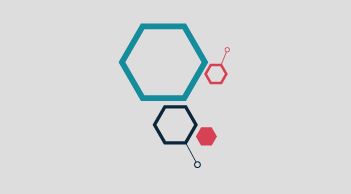In August of 2020, in the middle of a strict quarantine, there was an Argentine product that became incredibly popular. The “Conicet superbarbicles” – as they were called – were undoubtedly the hallmark of the pandemic in Argentina. In just a few days, families, schools, offices, mass events and public transportations all had them. The anti-Covid mask, created jointly by Kovi, Conicet scientists, and two public universities (UBA and UNSAM) were odorless, eliminated 97% of bacteria, and were as long lasting as 15 disposable face masks. The key to its development was nanotechnology.
This is perhaps the most popular and commercially successful case of the boom in nanotechnology-based products applied to health. This has been a growing reality in the country and in the region in the last 10 to 15 years, and has been applied to nanomedicine.
According to official National Institute of Statistics and Censuses (INDEC) data, the economy of innovation is Argentina’s third largest export sector. The report “Balance of payments, international investment position and foreign debt” indicates that exports of the sector in 2022 were u$s 7834 million, which implies a historical maximum and a growth of 19% in just one year.
The strengthening of bio-nanotechnology is one of the key axes, which is reflected in greater resources injected from the State for ideas or projects in development. In March this year, in fact, the Ministry of Science, Technology and Innovation launched the Federal Plan for the Promotion of Biotechnology and Nanotechnology for more than 3.8 billion Argentine pesos by 2023. The boost to the sector is also visible in other countries in the region, especially Brazil and Mexico, two countries that are leading developments in nanotechnology.
This wonderful step from science to applied science has given rise to numerous products and services in the field of health that improve the quality of life of thousands of people, and are a valuable tool for doctors. There are many examples of projects led by Argentine companies and institutions.
Ebers is an Argentine startup that emerged in 2018 in order to contribute to the global treatment of diabetic foot, which currently affects millions of people. They developed smart and flexible insoles with pressure sensors that can be used to study a patient’s walking behavior and prevent early injuries, which can be the main cause of amputation. Nowadays, they export their products to Brazil and Europe.
Another case is the company MABB, founded in 2006, which developed the Z7 ceramic dental implants, manufactured from Zirconia Yttria, a biocompatible nanostructured ceramic biomaterial that is metal-free, eliminating the risk of corrosion, release of ions and/or invasive particles, while preventing gum recession. There has also been significant progress in the area of diagnostics. For example, Zev Biotech, a startup founded in 2014, developed and commercialized molecular diagnostic kits based on a genomic platform, which allows to predict, diagnose and/or evaluate the treatment of diseases with a higher degree of certainty, in a fast and personalized way. Although this product is present in advanced countries, this project responded to a specific problem that had been detected in Argentina and other emerging countries in general. That is, there was a lack of compatibility between imported diagnostic equipment and the specific needs of local clinical analysis laboratories. The Argentine Nanotechnology Foundation (FAN), incubator of this and many other projects, is a key player in the Argentine nano ecosystem.
Disinfectant technologies applied to healthcare are also being widely developed throughout the country. Companies like Aike developed the first nanotechnology paint in Argentina that incorporates silver nanoparticles, a safe and efficient natural antimicrobial agent used to achieve asepsis in painted environments, like hospitals and health centers. Recently, ANMAT approved the first Argentine nano-disinfectant using Hybridon technology, which is not available on the market but consists of an antibacterial and antimicrobial coating for operating rooms and hospital wards and has residual effect.
Despite the boom, the challenges for companies and startups leading innovation with nanomedicine continue. They range from obtaining funding to support research and develop prototypes (often unsuccessful attempts to find the right one), to finding open-minded suppliers that are willing to understand the product being sought and are willing to expand their technological capabilities to break new ground. In terms of the potential sources of funding, there are multiple options, ranging from participating in contests, obtaining subsidies or receiving startup accelerator funds, both public and private. In general, public funding is aimed at projects in their early stages and private resources for the more advanced stages.
There is no doubt that Argentina, as well as Latin America, has the potential to continue exploring and progressing towards the development of innovative solutions that respond to the real needs of people in the field of health. Let’s welcome innovation, science and research!
María Eugenia Vargas Directora general de LLYC Argentina




